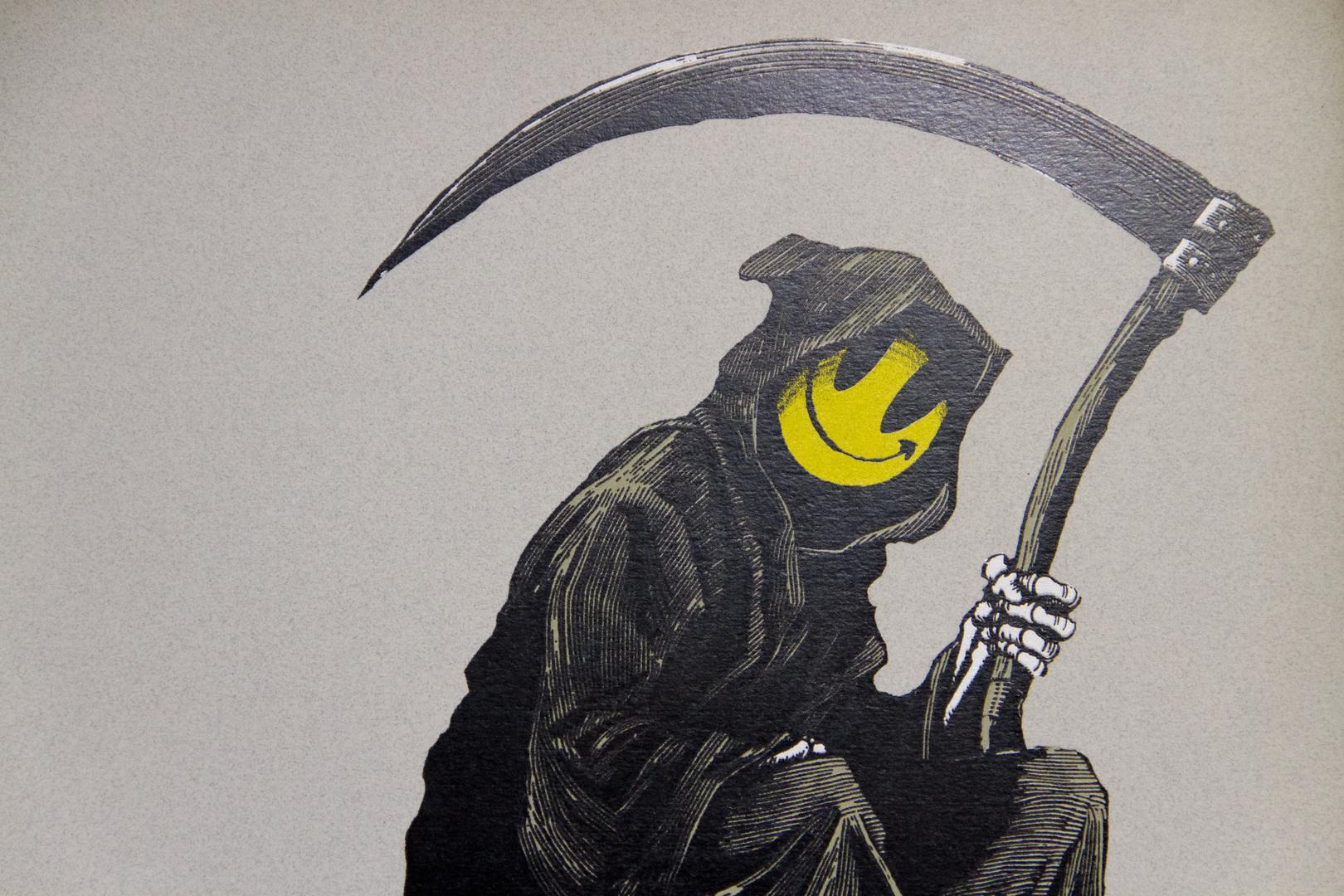Did you get the e-mail?
“The month of August 2014 includes five Fridays, five Saturdays and five Sundays. This phenomenon occurs only once every 823 years. The Chinese call this ‘a pocketful of money.’ You will never witness this phenomenon again. The last time this happened was in 1191, and it won’t happen again until 2837.”
As it happens, that claim is patently false. The entire 2014 calendar year, August included, repeats itself in 2025. What’s more, a calendar month containing five Fridays, five Saturdays and five Sundays is an almost annual occurrence. After this month, the next occurrence is May 2015.
This urban myth has bounced around the Internet for years. I don’t know why people make these things up, nor am I very interested. But why do people propagate these myths? Why do they click the “Forward” button, not the Trash icon? That interests me a lot.
The answer, I think, relates to our mortality. How many of you paused momentarily when you contemplated those disparate months? August 1191. August 2014. August 2837.
In my own case, I certainly stopped and pondered. I’m only alive for one of those months. And I’ll never live August 2014 again! I didn’t forward the e-mail on, but I cared enough to google its claims, and to write this column. Mortality matters.
On Ash Wednesday especially, Christians are encouraged to contemplate the inevitability of death. “Remember, you are dust and to dust you shall return.” It is expressed in public rituals and made explicit in Lent, but in fact Christians are invited to meditate on their mortality frequently, all year round.
It’s very natural I think — and common — to view death as an unmitigated catastrophe. Something to be avoided at all cost. Consider, for example, these words from Dr Atul Gawande, a world-class surgeon and writer:
“The simple view is that medicine exists to fight death and disease, and that is, of course, its most basic task. Death is the enemy. But the enemy has superior forces. Eventually, it wins. And, in a war that you cannot win, you don’t want a general who fights to the point of total annihilation. You don’t want Custer. You want Robert E. Lee — someone who knew how to fight for territory when he could and how to surrender when he couldn’t. Someone who understood that the damage is greatest if all you do is fight to the bitter end.”
These are wise words. I imagine they must resonate with each and every person, because Dr Gawande is speaking to something that transcends religion and culture. He is speaking to the human condition.
Dying is a mystery. Since we die only once, we have little or no experience to draw upon when death comes upon us in the first person. The experience is uncertain, and it’s mostly outside our control. It’s no wonder death, at an instinctive level, causes fear and anxiety.
Traditionally, people have dealt with the mystery of death through religion or spirituality. Ours is not a very religious age, nor even a literary age, but it is a scientific age, so we naturally turn to science. Yet as Dr Gawande observes, science has its limits. Science treats death as a problem to solve, not as a mystery to encounter, and even within these narrow parameters, science falls short.
I have not died, I have not nearly died, and I am not dying now. So perhaps I should ‘fall short’ myself. Part of me wants to lapse into a reverent silence, and cede the floor to others, whose death is much more imminent.
But the fact remains that every death is unique. Each of us must die our own death. None of us, therefore, is more qualified than others to speak, or less qualified. Flannery O’Connor — who was dying when she wrote this — describes dying as “a place, more instructive than a long trip to Europe, and it’s always a place where there’s no company, where nobody can follow.” So I will persevere and finish what I started, in the hope and the prayer that I avoid platitudes.
It may well be natural to view death as a catastrophe, but Christians are called to be supernatural. To view death as a friend. On his deathbed, St Francis famously extolled “Sister Death,” and he is not alone among the saints. “For me, to live is Christ and to die is gain,” St Paul wrote. “I desire to depart and be with Christ, which is better by far.”
Paul could write that because he knew Christ intimately, and to know God is to love God. The positive always trumps the negative. So it’s hardly surprising that Paul’s positive desire for one mystery — union with God — superseded and even overwhelmed his negative fear of another mystery — death.
But while Paul’s words are profoundly meaningful to him and to many believers, to others his words are trite. For some people, the mystery of God is even less knowable and more unknown than the mystery of death. What then? Maybe that’s why it’s good for us to contemplate our own death. When I become familiar with the mystery of my own mortality, maybe God reveals Himself.
The terminally ill seem to excel in their appreciation of the smallest details of life. If a person knew they would die in September, they would invariably savour August, with or without urban myths landing in their inbox. In the history of the world, August 2014 is unique for each and every one of us. But people facing death seem to know that better.
When a dying person contemplates death as an imminent reality, they’re contemplating life too, and life is enlarged. I’d go further. When a person of faith contemplates death as an imminent reality, they’re contemplating eternity too. And, just as life is enlarged, so too the mystery of eternity; the mystery of God.
This is how it seems to me now, when I am young and healthy. To labour O’Connor’s analogy, I’m still on the tarmac. The view, I’m sure, is different from the air, and different again in the great cities of Europe.






That’s very cool Fr John. That’s why I love Ash Wednesday and the whole of Lent – the opportunity it offers to reflect on my mortality, which sharpens my experience of life. It helps, too, that it happens during Autumn here, a beautiful time of year.
Father John this was an article worth pondering on. Last year I had a very special friend Lois who died in October. Lois taught me so much about facing death in a positive way. She had a great sense of humour and was determined to live her life to the full right to the end and she did this courageously. Her last email we received was, ” My hair has grown again and I will be able to have a hair cut before I falls off my twig.”. Lois wasn’t a Catholic, don’t know what religion she followed but I was amazed that she knew where she was going. I was very privileged to see her a week before she died. I was struggling about going overseas and my health wasn’t the best. She wanted me to come see her with her mum. Lois said, ” Helen you are going overseas and you will go again”. I did go overseas, she died the day before I left and I felt her presence when I returned home. Death is just a part of living, it is a journey we all take but it can be a positive journey if we are able to embrace it with an open heart, have the right people around us and hold onto Gods hand. I hope I can have the courage Lois had and embrace it as she did. I am so blessed to have had a friend such as Lois and also my mum and dad to show me the way.
To live a healthy and normal life is definitely a blessing from God Almighty. For those who are sick and who are aware that their days on this earth are numbered, I guess are very appreciative of every moment that they have and in fact they savour each moment with gratitude in their heart to God or to a higher being. For Christians who breathe their last breath and who have had a close relationship with Jesus Christ during their lifetime on earth are happy to journey to their maker and to eternity. A person who has lived their life in Truth, will make it’s final journey back to it’s maker.
Good article John, I am sure if every individual lives a good life and lives ONE DAY AT A TIME, I am sure that this individual would live every day to the fullest, giving Glory to God for the Gift of Life, knowing that one day in the future God would call them home to be with Him for eternity.